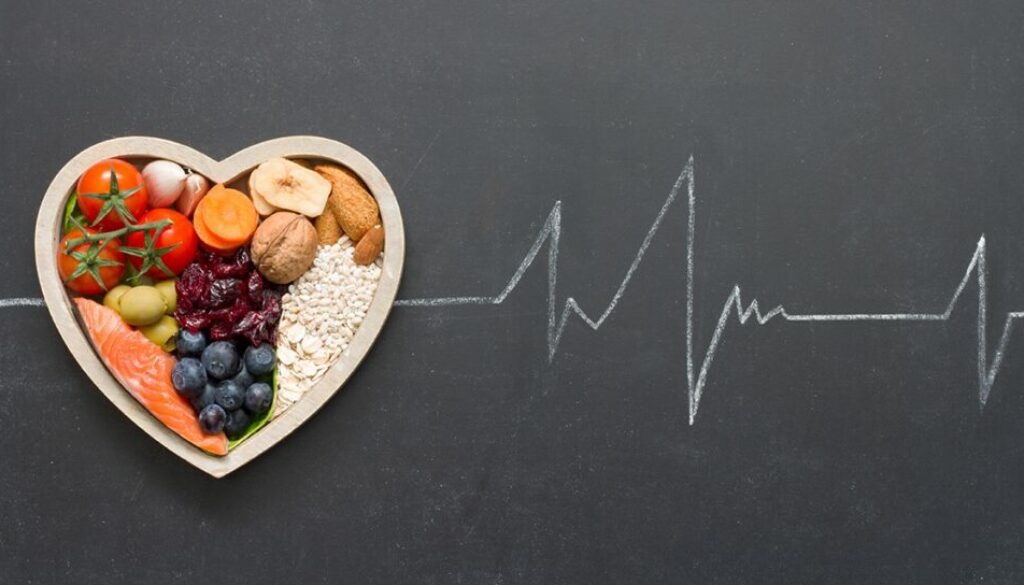Lifestyle Changes to Reduce Cholesterol
Have you, or someone you know, been told you have high cholesterol? Your doctor likely has told you about the importance of managing your cholesterol, but what does that mean? Gabriella Leary, PA with CMC Primary Care – Surfside Beach, is here to answer your questions and share lifestyle changes for lower cholesterol.
What is Cholesterol?
Your body requires cholesterol to make hormones and to digest food, but too much LDL cholesterol can build up in your arteries, form a fatty deposit, and increase your risk for heart disease and stroke.
Cholesterol is a lipid (fat) substance found in your blood. There are several types of cholesterol. The two you might be familiar with are sometimes referred to as, “good cholesterol” (HDL) and “bad cholesterol” (LDL). HDL’s, or high-density lipoprotein, help move extra cholesterol your body is not using to your liver. LDL’s, low-density lipoprotein, is the one to blame for the fatty deposits that form in your arteries when in excess in your bloodstream.
Risks of High-Cholesterol Levels
High cholesterol is typically only detected through a blood test. This can be done at your annual well visit, but if you have concerns, schedule an appointment today for a screening.
It’s important to know your cholesterol levels and monitor them regularly. It’s especially important to talk to your healthcare provider about cholesterol if you think any of the following risk-factors pertain to you:
- Poor diet
- Obesity
- Lack of exercise
- Smoking
- Alcohol
- 40+ years old
High cholesterol complications can be serious. Complications can include:
- Chest pain
- Heart attack
- Stroke
High cholesterol can be genetic, but it is often caused by unhealthy lifestyle choices. The good news? Healthier lifestyle choices can treat and prevent it. In addition, your primary care provider can prescribe medication if needed to help maintain healthy cholesterol levels.

Gabriella Leary, PA
To set an appointment with Gabriella Leary, PA at CMC Primary Care – Surfside, call 843-347-8000 today!
9 Lifestyle Changes for Lower Cholesterol
High cholesterol can be very dangerous, speak with your healthcare provider about what treatment plan is best for you. If you are able to make lifestyle changes. Gabriella Leary, PA recommends the following habits to naturally lower high cholesterol.
-
Make your plate heart-healthy
Changes to your diet can significantly reduce cholesterol and make your heart healthier.
-
Eat more plants
Fruits, vegetables, whole grains, beans, nuts and seeds are full of fiber and nutrients that support heart health. Try a spinach wrap with hummus and veggies or a big salad with strawberries, walnuts, avocado and a lemon vinaigrette.
-
Be picky about the fats you eat
Stay away from saturated fats like butter, heavy whipping cream, and large amounts of cheese. Instead, get your healthy fats from olive oil, avocados and fatty fish like salmon. These foods raise HDL (good) cholesterol. See our post on dietary fats.
-
Opt for lean protein
Limit red meat and fill up your plate with lean proteins like chicken, fish or plant-based proteins. Switch the hamburger out for grilled chicken on a whole-wheat bun or a lettuce bun. Add more black beans and less ground beef to your burrito bowl.
-
Reduce sugar, choose your carbs wisely
Some carbs like cookies, white bread, sweets and white rice are simple carbs that are often refined and come with added sugar. Instead of choosing a simple carb, opt for a complex-carb. Read more about the difference here. Healthier carbohydrates usually come from nature. Sweet potatoes, bananas, squash, oats, fruits and vegetables are all great sources of complex carbohydrates and fiber. Brown rice, quinoa, and whole-grain bread and pasta are also a much better choice than simple, refined carbs.
-
Prioritize Daily Movement
Getting regular exercise is another natural way to improve cholesterol. Marcia Hearl. director of CMC Cardiac and Pulmonary Rehabilitation, emphasizes the importance of aerobic exercise for heart health. Hearl tells us, “Improved cardiovascular fitness can lower your blood pressure and increase ‘good’ cholesterol, which among other benefits, can reduce the risk of developing heart disease, stroke, hypertension or diabetes.”
In addition to adding exercise to your routine, find other ways to add in physical activity throughout your day. Simple ways to get more movement in can include:
- Gardening
- Taking a walk-break during your lunch hour
- Stretching at your desk
- Choose the stairs
Eating healthier and getting more exercise can often result in weight loss. Carrying extra weight is another factor for high cholesterol. If you are someone who is overweight or obese and having trouble with your health, CMC Weight Loss is here to help.
-
Ditch the smoking habit
Smoking damages blood vessels and raises LDL cholesterol. People who smoked regularly and stopped can see improvements in their blood circulation and lung function within months of quitting. Smoking cessation can drastically lower your risk of heart disease.
-
Limit alcohol intake
Alcohol is broken down inside your liver and can negatively affect its ability to rid your body of “bad” cholesterol. Additionally, Alcohol tends to be loaded with sneaky calories and sugar. Cutting out or limiting alcohol intake can help with weight loss as well.
-
Stress less
Periods of heavy stress can have a number of negative impacts on your body, including raised cholesterol. High amounts of stress can mess with your hormones and impact your body’s levels of glucose and fatty acids. Stress can also cause you to turn to behaviors that aren’t great for your cholesterol, such as smoking, overeating, skipping your workouts and drinking.
You can take steps to combat stress such as:
- Get outside
- Move your body
- Limit screen time; play a game, read a book, try coloring pages instead
- Listen to music
- Journal
- Do something social
- Limit caffeine
- Cook a healthy, nourishing meal
- Pick up a new hobby
Get your annual physical
High cholesterol increases your risk of developing heart disease and stroke, which rank as the leading causes of death in the United States and South Carolina.
If you’re at risk of developing high cholesterol, you can’t afford to wait until symptoms occur. It can be easily determined during an annual physical. Cholesterol levels can be controlled and often reversed with the guidance of your physician and some lifestyle changes for lower cholesterol. Schedule an annual physical today with CMC Primary Care and take control of your health.




